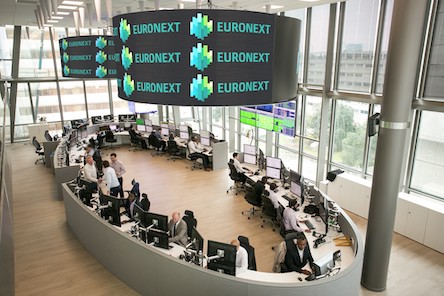Some of Europe’s biggest stock exchanges on Wednesday returned a negative response to UK proposals to shorten the trading day, delivering a blow to the campaign to give traders a better balance of work and life.
The Federation of European Securities Exchanges (FESE), which represents exchanges including Deutsche Boerse and Euronext, said in a statement on Wednesday that cutting hours would be detrimental to European markets and shareholders.
The London Stock Exchange (LSE) — not a member of FESE — held a public consultation earlier this year that found strong support for cutting the trading day by 90 minutes to improve mental health and help attract more women into the securities trading industry.
“FESE believes current trading hours best serve the interest of investors and that a shortening of the European trading day would be a move in the wrong direction and detrimental to European markets,” concluded FESE.
The LSE declined to comment on FESE’s statement.
The UK’s Investment Association had on Tuesday repeated its call for a cut in trading hours.
“We fully agree with FESE’s position,” said a Deutsche Boerse spokesman.
“European exchanges provide crucial functions to the real economy.
“Important mechanisms for conducting transactions and price formation, as well as risk and asset transfers, would be restricted in the course of a shortening of trading hours.”
London’s trading day runs from 8am. to 4:30pm while mainland European exchanges vary.
Deutsche Boerse and Euronext’s stock markets roughly match London with their opening hours.
FESE added: “In November 2019, the Association of Financial Markets in Europe (AFME), and the Investment Association (IA) called for European equity trading venues to review market opening hours across Europe.
“Prior to even considering any changes to trading hours for equities, which could be detrimental to European markets, a number of complex issues need to be thoroughly examined to fully understand the effects any changes would have …
“Shortening the trading hours of transparent lit exchange markets would further facilitate an unlevel playing field since Systematic Internalisers (SIs) or OTC markets, which already transact a large part of their business outside of exchanges’ main trading hours, would not be subject to such a change.
“An important issue raised is that of employee well-being.
“Given that SIs and OTC markets already operate outside current exchange opening hours and that their trading desks are therefore staffed to accommodate these markets and other asset classes, a shortening of the European trading day would have no impact on employee well-being.
“Other measures at an enterprise level would be necessary to facilitate improved work-life balance (e.g. working in shifts, flexible working hours).
“The negative impact on the interplay of markets and the economy in Europe has been left aside in this debate.
“Consideration must be given to the enormous size of the markets and economies affected, not forgetting the symbiotic relationship between trading hours and the real economy.
“Given the challenge of recapitalising our economies due to the Covid-19 crisis, efficient, competitive, and well-functioning European markets are of paramount importance to ensure our economies recover from the current crisis.
“As such, it is crucial that they remain available for market participants according to their needs.”
On Tuesday, the UK’s Investment Association said: “Traders in the investment management and banking industries have continued their call for a reduction to market trading hours, making the case to the pan-European exchange, Euronext.
“Responding to the Euronext consultation which closes today, the Association for Financial Markets in Europe (AFME) and the Investment Association (IA) have called for market trading hours to be shortened by 90-minutes to seven hours, from either 10:00-17:00 or 10:30-17:30 (CET).
“This latest consultation follows from that of the London Stock Exchange (LSE), which published its results at the beginning of June, and found that a ‘significant majority’ respondents supported the arguments for a shorter trading day.
“AFME and IA have now made the case to Euronext that a reduction of 90 minutes in European markets would concentrate liquidity creating more efficient markets – a move which would ultimately benefit savers and investors.
“Currently, 54% of trading on Euronext markets takes place within the last two and a half hours of trading (16.30-17.35), nearly a quarter of which is trading in the final five-minute closing auction.
“The present long hours culture also impacts on traders’ mental health and wellbeing and has been identified as a key obstacle in recruiting and retaining more diverse talent.
“It is hoped the proposed shortened day would have an impact on workplace culture and provide a necessary step towards creating more diverse and inclusive trading floors across Europe.”
